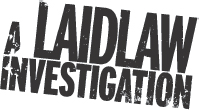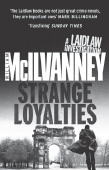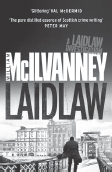The Papers of Tony Veitch (31 page)
Read The Papers of Tony Veitch Online
Authors: William McIlvanney

âBut they're not everywhere,' Mickey said and went across to the taxi-driver.
The others watched him in discussion with the driver. The driver didn't seem keen. But he accepted some notes and was pacified. He came over and picked up Mickey's case.
âAlways do the unexpected,' Mickey said and winked at Malkie.
He was already on his way out when Macey spoke.
âBe seein' you, Mickey,' he said.
âAye.' Mickey didn't look back. âIf you've got the Jodrell Bank telescope, ye might.'
The driver put Mickey's case in the luggage compartment and Mickey got in the back. Before they could pull away, Simpsy had run across to them and tried to open the offside door of the cab. It wouldn't open.
âThat door's buggered, pal,' the driver said.
Simpsy contented himself with waving and mouthing something and Mickey didn't bother to wave back.
âEdinburgh road,' the driver said through the opened glass panel. âWe better take the Kingston Bridge.'
In the back, Mickey was taking an unemotional farewell of Glasgow as they came off the sliproad and headed up to the Kingston Bridge. The lights of the city around him evoked no nostalgia. He was neutrally picking out areas that he knew when the driver braked suddenly. A car, which had overtaken them, was pulled up at the parapet of the Bridge, hazard lights flashing.
âThe mug canny stop there,' the driver said.
âNeither can we,' Mickey said. âShift!'
âAh'll just see whit the problem is,' the driver was saying and jumped out.
In that moment Mickey knew. In the pretence of the taxi-driver the whole treachery crystallised. His own past violence was like a prompter in his head. His life might have been a rehearsal for this moment, he saw it so clearly, how the other car would pull up behind them. When it did, he tried to open the offside door of the cab to give himself space. It wouldn't budge. In here he had no chance.
He kicked open the other door and dived out, pulling out the knife as he emerged. The open door was less a shield than a weapon against him. He shut it with his body, backing against it.
In the whipping wind above the bleak lights of the city he found the small space he was left with. The cars were parked tight, the taxi further out into the motorway than the others. To his right, Cam Colvin was waiting with two others. To the left there was John Rhodes with one hander.
Mickey dived to his left. He feinted at Rhodes' companion
and, as the man moved back, swung at Rhodes who had started to come in. He struck Rhodes' left arm, but with his right hand Rhodes caught the back of Mickey's head and rammed his face against the concrete of the parapet. Mickey tried to struggle through the blood but already knew himself beaten. In an instant his long-nurtured sense of himself dissipated like a dream.
Knowing himself about to die and, fighting against the nausea of unconsciousness, his thoughts weren't of regret or fears for family but of the bitter images of his failure to be harder, of Macey looking innocent, the taxi-driver jumping out, Simpsy mouthing through the glass of the window, âCheerio, Big Man.' He had a flash of Cam's face, cold as a talking statue, saying, âYou didn't take this place serious enough,' before he was hoisted on to the parapet and fell.
The sound of the body striking ground was so faint as to seem imagined. The banker's card, fallen from his pocket when he pulled the knife, spun in the exhausts of the leaving cars like a plastic leaf.
Â
Â
Â
Â
39
I
t was half-past one in the morning and it was raining. Gus and Laidlaw were standing near the end of the queue for taxis outside Central Station. It seemed a suitable ending to an evening that had turned into a belated wake for Tony Veitch.
They had improvised their way from pub to pub, disgorging opinions, feelings, odd confessions as they went. In the Wee Mann's Laidlaw had worked out that the answer to one of Tony's riddles was the pyramids. In the Virginian Gus had explained that the answer to the other was Tony himself. In Charlie Parker's, chosen by Gus in the mood of a belligerent fifth-columnist, Laidlaw claimed to see the point of the riddles.
âEats an egg and tastes feathers,' he said. âIs everybody else's pupil,' he said. âThe bones of the many housing the bones of the few,' he said. âIndividual sensitivity,' he said, âand the need for ordinary lives to be seen as the most important things in society. Maybe that's what the papers were trying to say. Maybe the papers are what we should be trying to live with our lives.'
In the Corn Exchange Gus cried a little, quietly, and Laidlaw struggled not to join him. They had attacked the city as if they meant to drink it dry, finishing up in Ad Lib after one in the
morning, toying with hamburgers and slaughtering the house red. Now in that complicated drunken way, they had worked out that Gus was going to take a taxi to his flat, where Marie presumably thought he had emigrated, and Laidlaw would share it with him as far as the Burleigh Hotel.
âWell,' Gus said, wrapping the thought round him like the coat neither of them had. âNot be long now. There's no place like home.'
âThat's right,' Laidlaw said. âNot even home.'
He didn't bother explaining his cryptic wisdom.
He couldn't have faced articulating the irony against which his marriage had finally foundered, how Gina had kept the envelope on which he had written the phone-number for her, containing his address, had looked up his number and phoned the house several times, asking for him. Ena's misunderstanding was nevertheless an accurate measurement of what had happened to them and they both knew it. They had agreed he had better move out. The thought of the possible effects on the children was like a future of endless guilt. The memory of the family he had come from made him feel he had betrayed his own past. The decision proliferated into a warren of problems in his mind. Tonight had been like an unsuccessful attempt to postpone them.
But bleak as his moment was, the city wouldn't leave him alone. Looking around him, he felt that maybe this was as near to home as he was going to get, the streets of this place. The queue was about the size of a small football crowd and in the smirring rain it should have been a formula for misery. But the place was jumping joyously.
A small man was passing along the line, playing a
mouth-organ and collecting money. He appeared to have found the instrument because he didn't once deviate into a tune. He just made watery clusters of sound. When somebody asked for a request, he said, âAway tae hell. Ah don't play tunes.'
Reaching into his pocket to reward impertinence, Laidlaw took out a handful of coins, selected a couple and remarked philosophically to Gus, âNotice that, when you're on the batter? Finish up with pockets like a street-bookie. See, you always buy with notes. Coins are beneath you. You become a whisky-millionaire.'
The man was earning his money. His jaunty noise was the drunken pulse of the group. People were laughing and shouting, vivid rain-streaked faces and loud voices, a queue by Hogarth. A group of women had emerged to dance like maenads around the small man. The whole line was a weird, dynamic unity, like a centipede on LSD.
A small, old woman standing behind Laidlaw tapped him on the shoulder. He turned round.
âSon,' she said. âThis is the best queue I've ever been in in my life.'
Laidlaw was laughing and he elaborately gestured her out of the queue to dance. Watching them jig sedately up and down the pavement, Gus drunkenly thought he was seeing something marvellous, a spirit so determined to enjoy life that it had an aesthetic of queues.
Â
Â
Â
Â
Â
Â
Â
Â
Â
Â
Â
Â
Turn the page for the first chapter of the last book of the Detective Laidlaw trilogy.
âA crime trilogy so searing it will burn forever in to your memory. McIlvanney is the original Scottish criminal mastermind'
CHRIS BROOKMYRE
Â
Â
Â

| When his brother dies stepping out in front of a car, Detective Jack Laidlaw is determined to find out what really happened. With his trademark corrosive wit, Laidlaw journeys through Glasgow's underworld and into past. There he discovers much more than he bargained for about his brother â and about himself. £7.99 |
| Meet Jack Laidlaw, the original damaged detective. When a young woman is found brutally murdered on Glasgow Green, only Laidlaw stands a chance of finding her murderer from among the hard men, gangland villains and self-made moneymen who lurk in the city's shadows. Winner of the CWA Silver Dagger Award. £7.99 |
Â
Â
Â
Â
Â
STRANGE
LOYALTIES
Â
Â
Â
Â
Â
1
I
woke up with a head like a rodeo. Isn't it painful having fun? Mind you, last night hadn't been about enjoyment, just whisky as anaesthetic. Now it was wearing off, the pain was worse. It always is.
I didn't want this day. Who sent for it? Try the next house. I burrowed into the pillow. It was no use. A sleepless pillow. What was it they called that? Transferred epithet? My teachers. They taught me everything I don't need to know.
I got up and went on safari for the pain-killers. There weren't many places they could be. The bedroom was unlikely. That left the sitting-room, the small kitchen, the hall and the bathroom. The hall was out. There was nowhere there to keep them, unless I had cunningly hidden them under the carpet. The places were the kitchen or the bathroom. Deductive reasoning. Lucky I was a good detective.
After checking cupboards that held old razor blades and more dishes than I would ever use, I found the magic bottle. It was in the sitting-room behind the tiers of the change I hated keeping in my pockets. I got a glass of water and took two pills, feeling they wouldn't be enough â like sending in two rookie policemen to quell a riot.
I came through and sat in the sitting-room. As memory returned, I wished it wouldn't, because I did it again. I started to cry. For about a month now I had been doing that. The day would begin with tears. Maybe other people did exercises. I cried. Nothing dramatic, no wracking sobs. Just quiet and remorseless tears. They wouldn't let up on me. The good thing was they didn't last long.
After a few minutes they stopped. I wiped my face with my hand and stood up. At least today was the day I had decided I would start to do something about my tears. One of the two people I'd told of my intention had said I was crazy. But I've never said I was sane â just no more mad than anybody else I see around me. When we breakfast on reported mayhem and go to sleep having ingested images of national catastrophe like Mogadon, don't anybody call me crazy.
I ran a bath and lay in it as if it were a ritual of cleansing more than physical. Heal me, holy water, and prepare me for the things I have to do. I don't think it worked but the hot water helped my head. As the whisky sweated out of me, the miasma round my mind drifted up and mingled with the rising steam like mist clearing.


